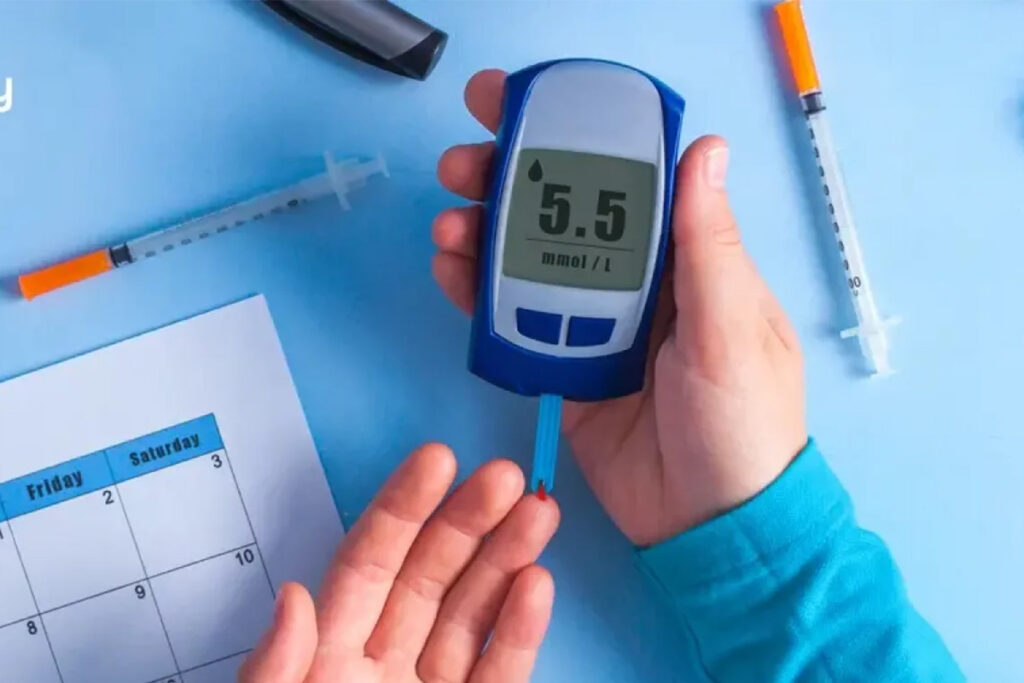Nursing Certifications go beyond being just credentials on a resume. They play a crucial role in enhancing a nurse’s expertise, improving patient care, and opening doors to career advancement. Earning nursing certifications not only validates a nurse’s specialized skills but also ensures higher standards in healthcare, benefiting both professionals and patients.
To help you advance in your profession, we have compiled a list of 24 essential nursing certifications that can help you boost your skill set and open doors to new career opportunities.

The Critical Care Registered Nurse certification, administered by the American Association of Critical-Care Nurses, is designed for nurses specializing in acute and critical care. This certification is available for RNs and APRNs who provide or influence direct patient care in adult, paediatric, and neonatal settings. For those working remotely with critically ill patients, an adult teleICU certification is also offered.

The Certified Emergency Nurse certification, administered by the Board of Certification for Emergency Nursing (BCEN), validates a nurse’s expertise in emergency care. While two years of emergency nursing experience are recommended, they are not mandatory. Earning the CEN credential showcases clinical practice proficiency, enhances career growth opportunities, and promotes lifelong learning and professional development.

The Certified Nurse Educator certification, administered by the National League for Nursing (NLN), allows nursing faculty to demonstrate expertise in nursing education. Accredited in 2009, this certification validates a nurse’s ability to educate and mentor future nurses in diverse settings, including universities, hospitals, technical schools, and colleges.

The Family Nurse Practitioner certification, administered by the American Nurses Credentialing Centre (ANCC), is ideal for nurses seeking to provide comprehensive primary care to patients of all ages. FNPs play a crucial role in preventive care, diagnosis, and treatment in various healthcare settings. To qualify, candidates must hold an MSN degree or higher and complete a minimum of 500 supervised clinical hours.

The Progressive Care Nursing certification, administered by the American Association of Critical-Care Nurses (AACN), is designed for nurses who care for acutely ill adult patients requiring an elevated level of care outside the ICU. This certification validates expertise in progressive care settings, including telemetry units, step-down units, and intermediate care. Nurses pursuing the PCCN certification can choose between direct patient care or an educator/preceptor pathway, both of which require verifiable clinical practice hours

The Nurse Executive (NE-BC) certification, administered by the American Nurses Credentialing Centre (ANCC), is ideal for nurses aspiring to high-level leadership roles in healthcare. This credential validates expertise in nursing management, strategic planning, and organizational leadership. A baccalaureate degree or higher is required for eligibility. Earning this certification can open doors to executive positions in hospitals, healthcare systems, and other medical organizations.

The Oncology Certified Nurse certification, administered by the Oncology Nursing Certification Corporation (ONCC), is designed for nurses specializing in cancer care. This credential ensures that nurses stay updated with the latest research, treatments, and trends in oncology nursing, improving patient outcomes. To qualify, candidates must have 2,000 hours of adult oncology nursing practice, two years of RN experience, and 10 hours of continuing oncology education or an elective course in oncology nursing.

The Certified Perioperative Nurse (CNOR) certification, administered by the Competency and Credentialing Institute (CCI), is a globally recognized credential for nurses specializing in surgical and perioperative care. This certification demonstrates expertise in patient safety, infection control, and surgical procedures. To qualify, candidates must have a minimum of two years and 2,400 hours of perioperative experience before applying for the exam. Currently, more than 40,000 nurses worldwide hold the CNOR credential.

The Certified Medical-Surgical Registered Nurse certification, administered by the Academy of Medical-Surgical Nurses (AMSN), is a prestigious credential for nurses specializing in medical-surgical patient care. This certification helps nurses enhance their expertise, boost their professional credibility, and demonstrate commitment to excellence in the field. With over 35,000 certified nurses in this specialty, CMSRN has been a trusted credential for more than two decades.

The Stroke Certified Registered Nurse certification, administered by the American Board of Neuroscience Nursing (ABNN), is ideal for nurses specializing in stroke care and recovery. This certification validates expertise in hyperacute, acute, post-acute, secondary, and preventive stroke care, ensuring nurses provide the highest quality treatment to stroke patients. To be eligible, RNs must have one year of full-time stroke nursing experience (2,080 hours) within the past three years.

The Certified Wound Care Nurse certification, administered by the Wound, Ostomy, and Continence Certification Board (WOCNCB), is designed for nurses specializing in wound management and healing. With nearly 2.5% of the U.S. population affected by chronic wounds, this certification helps nurses enhance patient care through advanced wound care techniques and evidence-based practices. To qualify, candidates must hold a bachelor’s degree or higher and complete one of the WOCNCB-approved educational pathways.

The Certified Paediatric Nurse certification, administered by the Paediatric Nursing Certification Board (PNCB), is designed for nurses specializing in paediatric patient care. This certification enhances a nurse’s expertise in child healthcare, providing opportunities for career growth and professional development. To qualify, nurses must follow one of two education pathways and hold a diploma, associate degree, or higher.

The Inpatient Obstetric Nursing Certification (RNC-OB), administered by the National Certification Corporation (NCC), validates a nurse’s advanced expertise in obstetric care. This certification equips nurses to provide a higher level of maternity and childbirth care, enhancing both patient outcomes and career opportunities. Eligibility requires a minimum of two years of experience in obstetric nursing, with at least 2,000 hours of practice as an RN.

The Cardiac-Vascular Nursing Certification (CV-BC), administered by the American Nurses Credentialing Centre (ANCC), recognizes nurses specializing in cardiac care, treatment, and rehabilitation for patients with heart disease. Certified nurse’s play a crucial role in symptom management, complication prevention, and patient education on maintaining heart health. To earn this certification, candidates must pass a competency-based exam.

The Orthopaedic Nurse Certification, administered by the Orthopaedic Nurses Certification Board, is designed for nurses specializing in orthopaedic patient care. This certification promotes excellence in specialty practice by fostering professional development and clinical expertise. To qualify, candidates must have at least 1,000 hours of experience in an orthopaedic nursing setting within the past three years.

The Certified Dialysis Nurse (CDN) credential, administered by the Nephrology Nursing Certification Commission, is designed for nurses specializing in renal care and dialysis treatment. Dialysis nurses operate advanced machinery and apply strong assessment skills to support patients with limited kidney function. To qualify, candidates must have 2,000 hours of experience in nephrology nursing care, particularly for patients requiring dialysis.

The Legal Nurse Consultant Certified credential, administered by the American Association of Legal Nurse Consultants, is ideal for nurses interested in combining healthcare expertise with legal knowledge. Legal nurse consultants work as analysts, collaborators, strategists, researchers, and educators in legal matters related to healthcare. To be eligible for the certification exam, candidates must complete 2,000 hours of work in a legal nurse consulting role.

The Certified Infection Control Nurse credential, administered by the Certification Board of Infection Control and Epidemiology, is designed for nurses dedicated to infection prevention and control. Earning this certification enhances expertise in interpreting evidence-based research and advocating for key infection prevention efforts in healthcare settings.

The Certified Hospice and Palliative Nurse (CHPN) credential, administered by the Hospice and Palliative Nurses Association, the Hospice and Palliative Nurses Foundation, and the Hospice and Palliative Credentialing Centre, is designed for experienced RNs specializing in end-of-life care. This certification validates expertise in providing compassionate and comprehensive care for terminally ill patients. To be eligible, candidates must have 500 hours of practice in hospice and palliative care within the past 12 months before taking the exam. Nurses who achieve CHPN certification demonstrate enhanced confidence, competence, and a deeper understanding of the specialty.

The Sexual Assault Nurse Examiner (SANE) certification, administered by the International Association of Forensic Nurses (IAFN), is designed for nurses specializing in forensic nursing and providing care for survivors of sexual assault. There are two SANE certifications, SANE-A (Adult/Adolescent) which focuses on providing care to adult and adolescent survivors and SANE-P (Paediatric) Focuses on caring for paediatric and adolescent patients. To be eligible, applicants must have two years of clinical practice as an RN. Certification validates expertise in trauma-informed care, forensic evidence collection, and patient advocacy.

The Informatics Nursing Certification (NI-BC), administered by the American Nurses Credentialing Centre (ANCC), combines nursing and technology to enhance healthcare delivery. Key Roles of Informatics Nurses includes improve information flow within healthcare settings, reduce errors and enhance patient safety, optimize electronic health records (EHRs) and data management, save time for nurses and healthcare teams and empower patients with access to their medical history.

The Ambulatory Care Nursing Certification (AMB-BC), administered by the American Nurses Credentialing Centre (ANCC), enhances nurses’ expertise in outpatient care settings. Key Areas of Focus includes clinical practice, effective communication, patient interaction and education, ethical and leadership responsibilities, Compliance with healthcare laws and policies as well as teaching patients and caregivers about disease management and wellness. The exam includes an expanded section on telehealth, reflecting its growing role in patient care.

The Advanced Diabetes Management Certification (ADM-BC), administered by the Association of Diabetes Care and Education Specialists (ADCES), is designed for RNs and healthcare professionals specializing in diabetes care. The educational qualifications include a master’s degree or higher in nursing or a related healthcare field and candidates must have 500 clinical practice hours in diabetes management.

The Board-Certified Holistic Nurse (HN-BC) credential, administered by the American Holistic Credentialing Corporation (AHNCC), is designed for non-Baccalaureate RNs who practice holistic nursing. This certification emphasizes a whole-person approach to healthcare, integrating mind, body, and spirit in patient care. The key requirement includes Key Requirements include 48 hours of continuing education in in holistic nursing philosophy, theory, practice, research, related concepts, health, and care.
Certification showcases a nurse’s expertise and dedication to evidence-based practice, ensuring they stay updated with the latest healthcare advancements. Recognized annually on March 19 as Certified Nurses Day by the ANCC, obtaining and maintaining a certification equips nurses to deliver the highest quality care.
Salmiya : REG IMMIGRATION AND EDUCATION
2nd Floor, Building No.44, Yusuf, Yousef Al Bader St, Salmiya.
Jaleeb Al Shuyoukh :
Building No. 146
Floor 2, Street 6,
Block 4, Near Subway,
Jaleeb Al-Shuyoukh
Mangaf : 1st floor Building number 90
Street number 25
Mangaf block 4
Near Green Asia supermarket
Copyright © 2025 REG EDUCATION AND IMMIGRATION. All rights reserved. Powered by Zeekoi Enterprise Solutions